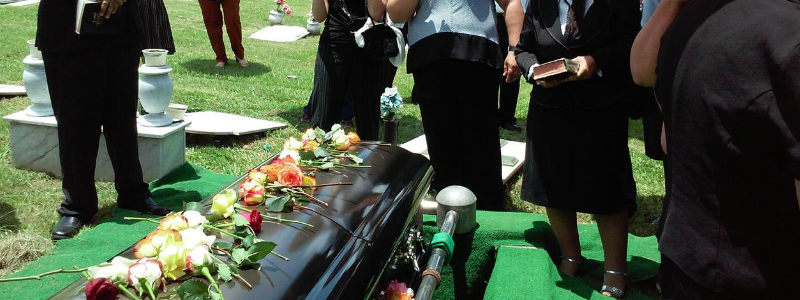Every state in the United States’ allows for a wrongful death claim to be filed. By filing a wrongful death claim, the losses you and your family members have experienced, due to the wrongful death of a family member, can be compensated. But, every state has different rules and regulations when it comes to wrongful death claims. For your wrongful death suit to be successful, you must know these rules and regulations and how to proceed within them.

What Is A Wrongful Death Claim In The State Of Oregon?
In the United States’ legal system, there is something known as a “wrongful death claim”. A wrongful death claim is a claim against an individual or entity who can be held liable for the death of another individual. While a wrongful death claim can be filed in any state, every state has its own rules regarding wrongful death claims and the results that such a claim can lead to.
In the United States’ legal system, there is a claim that can be brought in a civil action known as a “wrongful death claim”. A wrongful death claim is, essentially, a claim against an individual or entity who can be held liable for the death of an individual or individuals.
Even though a wrongful death claim can be filed in any state, the specific rules and regulations regarding wrongful death claims differ from state-to-state. These rules and regulations affect the ways in which a wrongful death claim can be filed, and more importantly, the results that a wrongful death claim can lead to.
Within the state of Oregon, as per Oregon Revised Statutes section 30.020, wrongful death is defined as a death caused by “the wrongful act or omission of another”. Any death caused by a reckless or negligent act falls under this umbrella, as do acts of intentional violence. But, since the person who suffered from an act of that sort is no longer around, it is up to a family member of the deceased to file the claim.
Traditionally, the surviving spouse or parent files a wrongful death claim. But, in the state of Oregon, any family member of the deceased – children, stepchildren, stepparents, grandparents – can file a wrongful death claim.
A wrongful death claim is not a criminal case but, rather, a civil suit. Because of this, the results of a wrongful death claim are monetary, rather than criminal charges to the individual or entity who is being held liable for the death. Depending on the claim being made and the individual or entity’s behavior that lead to the wrongful death, punitive damages can be awarded.
- A wrongful death claim is a claim against an individual or entity who can be held liable for the wrongful death of an individual or individuals
- In Oregon, any death caused by a reckless, negligent, or intentional act can be considered a wrongful death
- A family member of the deceased – spouse, child, parent, sibling, stepbrother, stepparent, grandparent – must file the wrongful death claim
- Since a wrongful death claim is a civil suit, the results of a wrongful death claim are monetary
- Depending on the specifics of the case, punitive charges may be awarded
But, there is a wrongful death cap in Oregon.
What Is The Oregon Wrongful Death Cap?
Oregon’s wrongful death cap means that within the state of Oregon, the non-economic damages awarded from a wrongful death claim may not exceed $500,000. But, for economic damages that arise from medical bills and funeral services – to name just two examples – the damages awarded may exceed $500,00 if the verified losses exceed $500,000. Punitive damages may also be awarded in specific wrongful death cases.
As of 2020, the non-economic damages that may be awarded from a wrongful death claim may not exceed $500,000. Noneconomic damages are defined as “subjective losses” that can not be measured monetarily. These are damages such as pain, distress, loss of companionship, loss of comfort; to name just a few examples.
A wrongful death claim will also lead to economic damages being awarded. Economic damages, in contrast to noneconomic damages, are damages that have lead to objectively verifiable economic losses. Medical bills, funeral services, and a verified loss of past or future income are three examples of economic damages that can be awarded in a wrongful death suit.
Punitive damages may also be awarded, but this depends on the case. As per Oregon Revised Statutes section 31.730, for punitive damages to be awarded, there must be clear evidence that the individual or entity who was liable for the wrongful death was malicious in their intent. Alternatively, if there is evidence that the individual displayed a conscious indifference to the health and safety of others, then punitive damages can be awarded.
The state of Oregon practices a modified version of comparative negligence. In a wrongful death claim, if the deceased individual or the individual making the claim was partly at fault for the wrongful death that took place, a wrongful death claim can still be filed. But, the awarded damages will be reduced, depending on just how at fault the deceased individual or individual making the claim was. If the deceased individual was 51% responsible, or more, then damages will not be awarded.
- The Oregon wrongful death cap may not exceed $500,000
- The economic damages awarded can exceed $500,000 if they are verified losses – medical bills, for example
- Punitive damages may be awarded, but that is only if the individual or entity being held liable was intentionally malicious or consciously indifferent to the health and safety of others
- Since the state of Oregon practices a modified version of comparative negligence, the damages awarded will differ depending on whether or not the deceased individual or claimant was at fault and just how at fault they were

What Is The Best Way To Proceed With A Wrongful Death Claim?
The best way to proceed with a wrongful death claim is to organize and file the claim as soon as possible. A wrongful death claim may be filed no later than three years after the deceased individual’s final injury. Right after that, it’s important to organize the facts of the case and the damages being sought. Then, an experienced legal attorney should be hired, so that you will be awarded the damages that you deserve.
The state of Oregon’s statute of limitations for wrongful death claims is three years after the deceased individual’s final injury. Because of that, it’s a good idea to organize and file the claim as soon as possible.
Right after that, the facts of the case must be organized. Any economic and noneconomic losses must be recorded. When these facts have been organized, the next best thing to do is to hire an experienced legal attorney.
By hiring an experienced legal attorney, moving through the process of proving fault, establishing economic and non-economic damages, and being awarded the proper damages is much easier. Experienced legal attorneys understand the law, they know how to navigate wrongful death cases, and they know how to fulfill the necessary legal requirements that will allow your case to be a success.
- The statute of limitations for a wrongful death claim is three years after the deceased individual’s final injury
- Organizing and filing a wrongful death claim as soon as possible is ideal, due to the statute of limitations
- The facts of the case and the damages being sought must be cataloged and organized
- By doing this, you will understand your case, and the legal attorney that you hire will be able to understand your case
For a successful wrongful death claim, hiring an experienced legal attorney like Ryan Hilts is the best choice and will make the process so much easier.




